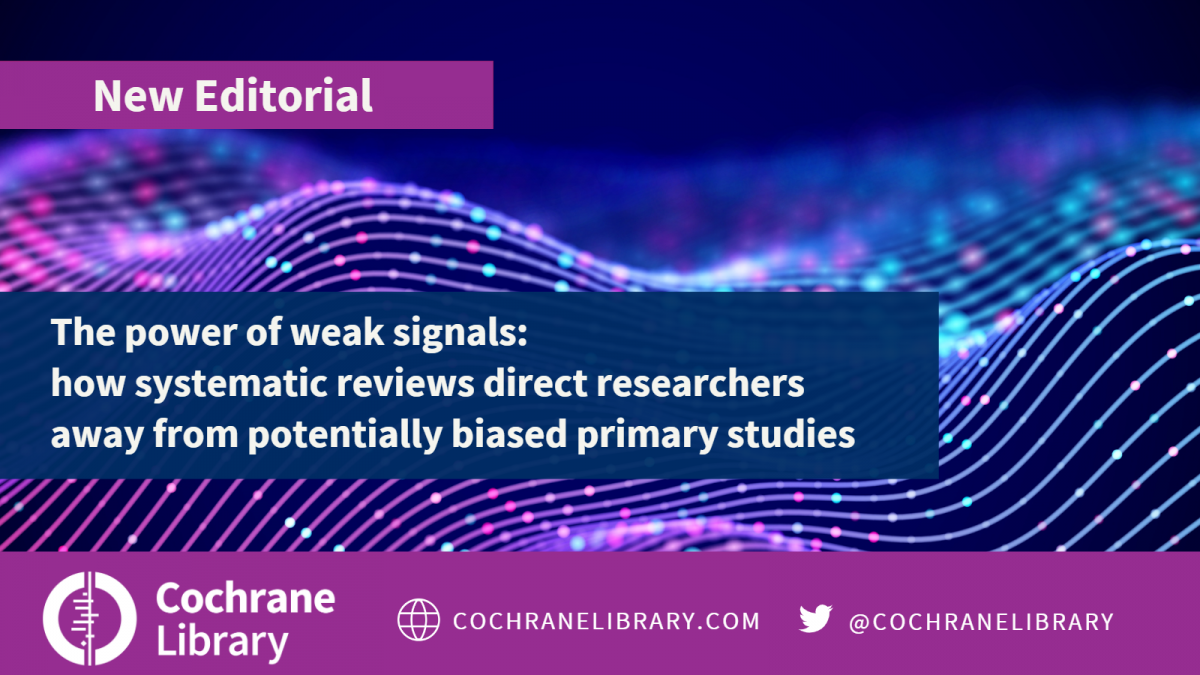
A new Cochrane Library Editorial has been published about the role of Cochrane reviews in directing researchers away from potentially biased primary studies.
The editorial discusses new evidence that risk of bias ratings disseminated in Cochrane reviews can influence the citations received by the appraised studies. Specifically, after a review is published, papers at ‘high risk of bias’ due to selective reporting attract fewer citations than a comparable group of ‘low risk of bias’ papers. Whilst the effect is modest, it is notable that systematic reviews can redirect researchers away from wayward science.
The editorial calls for more research on how to turn the weak signal provided by risk of bias ratings into a stronger one, to increase the efficacy of systematic reviews in shaping follow-on science and to complement more traditional signals such as retractions, citations, and journal-level metrics.
Karla Soares-Weiser, Editor in Chief of Cochrane, says, "Cochrane is a strong advocate for transparency and integrity in research. These issues go to our core: without access to relevant, unconflicted and accurate data, our reviews will not be of the quality we want. This editorial highlights the potential for Cochrane reviews, and the rigorous assessments carried out as part of the review process, to further contribute to improving the overall quality of health research."


